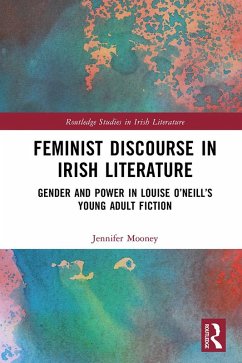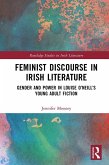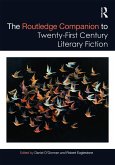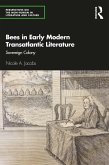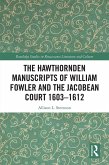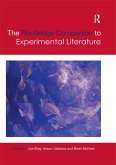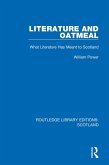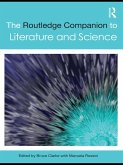Jennifer Mooney
Feminist Discourse in Irish Literature (eBook, ePUB)
Gender and Power in Louise O'Neill's Young Adult Fiction
41,95 €
41,95 €
inkl. MwSt.
Sofort per Download lieferbar

21 °P sammeln
41,95 €
Als Download kaufen

41,95 €
inkl. MwSt.
Sofort per Download lieferbar

21 °P sammeln
Jetzt verschenken
Alle Infos zum eBook verschenken
41,95 €
inkl. MwSt.
Sofort per Download lieferbar
Alle Infos zum eBook verschenken

21 °P sammeln
Jennifer Mooney
Feminist Discourse in Irish Literature (eBook, ePUB)
Gender and Power in Louise O'Neill's Young Adult Fiction
- Format: ePub
- Merkliste
- Auf die Merkliste
- Bewerten Bewerten
- Teilen
- Produkt teilen
- Produkterinnerung
- Produkterinnerung

Bitte loggen Sie sich zunächst in Ihr Kundenkonto ein oder registrieren Sie sich bei
bücher.de, um das eBook-Abo tolino select nutzen zu können.
Hier können Sie sich einloggen
Hier können Sie sich einloggen
Sie sind bereits eingeloggt. Klicken Sie auf 2. tolino select Abo, um fortzufahren.

Bitte loggen Sie sich zunächst in Ihr Kundenkonto ein oder registrieren Sie sich bei bücher.de, um das eBook-Abo tolino select nutzen zu können.
Feminist Discourse in Irish Literature addresses the role of YA Irish literature in responding and contributing to some the most controversial and contemporary issues in today's modern society: gender, and conflicting views of power, sexism, and consent.
- Geräte: eReader
- mit Kopierschutz
- eBook Hilfe
Andere Kunden interessierten sich auch für
![Feminist Discourse in Irish Literature (eBook, PDF) Feminist Discourse in Irish Literature (eBook, PDF)]() Jennifer MooneyFeminist Discourse in Irish Literature (eBook, PDF)41,95 €
Jennifer MooneyFeminist Discourse in Irish Literature (eBook, PDF)41,95 €![The Routledge Companion to Twenty-First Century Literary Fiction (eBook, ePUB) The Routledge Companion to Twenty-First Century Literary Fiction (eBook, ePUB)]() The Routledge Companion to Twenty-First Century Literary Fiction (eBook, ePUB)48,95 €
The Routledge Companion to Twenty-First Century Literary Fiction (eBook, ePUB)48,95 €![Bees in Early Modern Transatlantic Literature (eBook, ePUB) Bees in Early Modern Transatlantic Literature (eBook, ePUB)]() Nicole A. JacobsBees in Early Modern Transatlantic Literature (eBook, ePUB)41,95 €
Nicole A. JacobsBees in Early Modern Transatlantic Literature (eBook, ePUB)41,95 €![The Hawthornden Manuscripts of William Fowler and the Jacobean Court 1603-1612 (eBook, ePUB) The Hawthornden Manuscripts of William Fowler and the Jacobean Court 1603-1612 (eBook, ePUB)]() Allison L. SteensonThe Hawthornden Manuscripts of William Fowler and the Jacobean Court 1603-1612 (eBook, ePUB)41,95 €
Allison L. SteensonThe Hawthornden Manuscripts of William Fowler and the Jacobean Court 1603-1612 (eBook, ePUB)41,95 €![The Routledge Companion to Experimental Literature (eBook, ePUB) The Routledge Companion to Experimental Literature (eBook, ePUB)]() The Routledge Companion to Experimental Literature (eBook, ePUB)51,95 €
The Routledge Companion to Experimental Literature (eBook, ePUB)51,95 €![Literature and Oatmeal (eBook, ePUB) Literature and Oatmeal (eBook, ePUB)]() William PowerLiterature and Oatmeal (eBook, ePUB)31,95 €
William PowerLiterature and Oatmeal (eBook, ePUB)31,95 €![The Routledge Companion to Literature and Science (eBook, ePUB) The Routledge Companion to Literature and Science (eBook, ePUB)]() The Routledge Companion to Literature and Science (eBook, ePUB)52,95 €
The Routledge Companion to Literature and Science (eBook, ePUB)52,95 €-
-
-
Feminist Discourse in Irish Literature addresses the role of YA Irish literature in responding and contributing to some the most controversial and contemporary issues in today's modern society: gender, and conflicting views of power, sexism, and consent.
Dieser Download kann aus rechtlichen Gründen nur mit Rechnungsadresse in A, B, BG, CY, CZ, D, DK, EW, E, FIN, F, GR, HR, H, IRL, I, LT, L, LR, M, NL, PL, P, R, S, SLO, SK ausgeliefert werden.
Produktdetails
- Produktdetails
- Verlag: Taylor & Francis eBooks
- Seitenzahl: 210
- Erscheinungstermin: 21. Juli 2022
- Englisch
- ISBN-13: 9781000603163
- Artikelnr.: 64124253
- Verlag: Taylor & Francis eBooks
- Seitenzahl: 210
- Erscheinungstermin: 21. Juli 2022
- Englisch
- ISBN-13: 9781000603163
- Artikelnr.: 64124253
- Herstellerkennzeichnung Die Herstellerinformationen sind derzeit nicht verfügbar.
Jennifer Mooney is an assistant professor in the School of English, Dublin City University, Ireland. She is deputy chair of its M.A. in Children's and Young Adult Literature degree programme and co-director of the Centre for Research in Children's and Young Adult Literature. Jennifer's teaching and research interests include gender and sexuality in young adult literature and popular culture, recent critical concerns with posthumanism and ecocriticism, and Irish studies. She serves on The Irish Society for the Study of Children's Literature board.
Introduction
i. Introduction
ii. The Primary Texts
iii. Literary Context and Theoretical Approach
iv. Significance of the Research
v. A Note on the Inclusion of International Texts
vi. Chapter Overview
Chapter One: Historical Contexts
i. Introduction
ii. "Rape Culture" Theory as a Feminist Project: the 1:5 Statistic
iii. "Rape Culture" Theory and the 1:5 Statistic in Ireland
iv. Failures of "Rape Culture" Theory
v. YA Literature as Social-Change-Oriented
vi. A Brief History of YA Literature
vii. Theorising YA Literature
viii. YA Literature and Research in the Late-Twentieth and Early
Twenty-First Centuries
ix. The Rise of Irish YA Literature in the Second Decade of the
Twenty-First Century
x. The Power of the Past on Irish YA Literature
xi. The Role of Irish YA Literature in Addressing Contemporary Issues
xii. Conclusion: The Role of Irish YA in Addressing Contemporary Issues
Chapter Two: Louise O'Neill and Feminist Theory
i. Introduction
ii. Background and Upbringing
iii. Public Figure, Political Activist, Feminist
iv. Critical Responses to O'Neill's Texts
v. Categorising O'Neill's Texts
vi. Feminism and Poststructuralism
vii. A Brief History of Feminism
viii. Theories of Power and Agency in Second-wave Feminist Thought
ix. The Relevance of Second-Wave Feminism Today
x. Third-Wave Feminism, Post-Feminism and Intersectional Feminism
xi. The Relevance of Third-Wave Feminism Today
xii. Fourth and Fifth-Wave Contemporary Feminism
xiii. Conclusion
Chapter Three: Only Ever Yours
i. Introduction
ii. The Disciplined Body in Only Ever Yours
iii. Inviting a Feminist Reading: Imagery, Intertextuality, and
Typographical Play
iv. Technology and Posthumanism in Only Ever Yours
v. Technology, Consumerism and Media
vi. Social Media and Simulated Self-Identity in Only Ever Yours
vii. Apocalyptic Feminist Posthumanism in Only Ever Yours
vii. Didactic Feminism in Only Ever Yours
viii. Real-life Women and Girls' Power
ix. Youth Magazines and Media Discourse
x. Missed Opportunities?
xi. Conclusion
Chapter Four: Asking For It
i. Introduction
ii. Asking For It: Preliminary Feminist Reading
iii. Asking For It in Terms of Ireland and "Rape Culture"
iv. Asking For It: Resisting or Reinforcing "Rape Myths"?
v. Theorizing Rape as Inevitable: Victim-hood Forever in Asking For It
vi. The Problem of Alleged "Rape Culture" as Orthodoxy
vii. Overstating the Sexual Double Standard and Essentialising the Male
Body as Violent in Asking For It
viii. Feminist Criticism on Consent and Alcohol
ix. Consent and Alcohol in Asking For It
x. Missed Opportunities?
xi. Conclusion
Chapter Five: Alternatives to the Didacticism of "Rape Culture"
i. Introduction
Part One: Irish Authors
ii. Siobhán Dowd: A Swift Pure Cry
iii. Deirdre Sullivan: Needlework and Perfectly Preventable Deaths
iv. Sarah Maria Griffin: Spare and Found Parts and Other Words for Smoke
v. Moïra Fowley-Doyle: All The Bad Apples
Part Two: Non-Irish Authors
vi. Isabel Quintero: Gabi, a Girl in Pieces
vii. Helen Barnes: Killing Aurora
viii. Conclusion
Chapter Six: "Lad"- dishness
i. Introduction
ii. Masculinity Theory
iii. O'Neill's "Lads"
iv. Only Ever Yours "Lads"
v. Asking For It "Lads"
vi. Sullivan's, Griffin's and Fowley-Doyle's "Lads"
vii. Quintero's "Lads"
ix. Barnes's "Lads"
x. Conclusion
Chapter Seven: Radical AUTHORity
i. Introduction
ii. Complicating the Line between Young Adult and Adult in O'Neill's Works
iii. Radical AUTHORity in O'Neill's Works
iv. Power in The Surface Break
v. Radical AUTHORity in Sullivan's, Griffin's and Fowley-Doyle's Works
vi. Conclusion
i. Introduction
ii. The Primary Texts
iii. Literary Context and Theoretical Approach
iv. Significance of the Research
v. A Note on the Inclusion of International Texts
vi. Chapter Overview
Chapter One: Historical Contexts
i. Introduction
ii. "Rape Culture" Theory as a Feminist Project: the 1:5 Statistic
iii. "Rape Culture" Theory and the 1:5 Statistic in Ireland
iv. Failures of "Rape Culture" Theory
v. YA Literature as Social-Change-Oriented
vi. A Brief History of YA Literature
vii. Theorising YA Literature
viii. YA Literature and Research in the Late-Twentieth and Early
Twenty-First Centuries
ix. The Rise of Irish YA Literature in the Second Decade of the
Twenty-First Century
x. The Power of the Past on Irish YA Literature
xi. The Role of Irish YA Literature in Addressing Contemporary Issues
xii. Conclusion: The Role of Irish YA in Addressing Contemporary Issues
Chapter Two: Louise O'Neill and Feminist Theory
i. Introduction
ii. Background and Upbringing
iii. Public Figure, Political Activist, Feminist
iv. Critical Responses to O'Neill's Texts
v. Categorising O'Neill's Texts
vi. Feminism and Poststructuralism
vii. A Brief History of Feminism
viii. Theories of Power and Agency in Second-wave Feminist Thought
ix. The Relevance of Second-Wave Feminism Today
x. Third-Wave Feminism, Post-Feminism and Intersectional Feminism
xi. The Relevance of Third-Wave Feminism Today
xii. Fourth and Fifth-Wave Contemporary Feminism
xiii. Conclusion
Chapter Three: Only Ever Yours
i. Introduction
ii. The Disciplined Body in Only Ever Yours
iii. Inviting a Feminist Reading: Imagery, Intertextuality, and
Typographical Play
iv. Technology and Posthumanism in Only Ever Yours
v. Technology, Consumerism and Media
vi. Social Media and Simulated Self-Identity in Only Ever Yours
vii. Apocalyptic Feminist Posthumanism in Only Ever Yours
vii. Didactic Feminism in Only Ever Yours
viii. Real-life Women and Girls' Power
ix. Youth Magazines and Media Discourse
x. Missed Opportunities?
xi. Conclusion
Chapter Four: Asking For It
i. Introduction
ii. Asking For It: Preliminary Feminist Reading
iii. Asking For It in Terms of Ireland and "Rape Culture"
iv. Asking For It: Resisting or Reinforcing "Rape Myths"?
v. Theorizing Rape as Inevitable: Victim-hood Forever in Asking For It
vi. The Problem of Alleged "Rape Culture" as Orthodoxy
vii. Overstating the Sexual Double Standard and Essentialising the Male
Body as Violent in Asking For It
viii. Feminist Criticism on Consent and Alcohol
ix. Consent and Alcohol in Asking For It
x. Missed Opportunities?
xi. Conclusion
Chapter Five: Alternatives to the Didacticism of "Rape Culture"
i. Introduction
Part One: Irish Authors
ii. Siobhán Dowd: A Swift Pure Cry
iii. Deirdre Sullivan: Needlework and Perfectly Preventable Deaths
iv. Sarah Maria Griffin: Spare and Found Parts and Other Words for Smoke
v. Moïra Fowley-Doyle: All The Bad Apples
Part Two: Non-Irish Authors
vi. Isabel Quintero: Gabi, a Girl in Pieces
vii. Helen Barnes: Killing Aurora
viii. Conclusion
Chapter Six: "Lad"- dishness
i. Introduction
ii. Masculinity Theory
iii. O'Neill's "Lads"
iv. Only Ever Yours "Lads"
v. Asking For It "Lads"
vi. Sullivan's, Griffin's and Fowley-Doyle's "Lads"
vii. Quintero's "Lads"
ix. Barnes's "Lads"
x. Conclusion
Chapter Seven: Radical AUTHORity
i. Introduction
ii. Complicating the Line between Young Adult and Adult in O'Neill's Works
iii. Radical AUTHORity in O'Neill's Works
iv. Power in The Surface Break
v. Radical AUTHORity in Sullivan's, Griffin's and Fowley-Doyle's Works
vi. Conclusion
Introduction
i. Introduction
ii. The Primary Texts
iii. Literary Context and Theoretical Approach
iv. Significance of the Research
v. A Note on the Inclusion of International Texts
vi. Chapter Overview
Chapter One: Historical Contexts
i. Introduction
ii. "Rape Culture" Theory as a Feminist Project: the 1:5 Statistic
iii. "Rape Culture" Theory and the 1:5 Statistic in Ireland
iv. Failures of "Rape Culture" Theory
v. YA Literature as Social-Change-Oriented
vi. A Brief History of YA Literature
vii. Theorising YA Literature
viii. YA Literature and Research in the Late-Twentieth and Early Twenty-First Centuries
ix. The Rise of Irish YA Literature in the Second Decade of the Twenty-First Century
x. The Power of the Past on Irish YA Literature
xi. The Role of Irish YA Literature in Addressing Contemporary Issues
xii. Conclusion: The Role of Irish YA in Addressing Contemporary Issues
Chapter Two: Louise O'Neill and Feminist Theory
i. Introduction
ii. Background and Upbringing
iii. Public Figure, Political Activist, Feminist
iv. Critical Responses to O'Neill's Texts
v. Categorising O'Neill's Texts
vi. Feminism and Poststructuralism
vii. A Brief History of Feminism
viii. Theories of Power and Agency in Second-wave Feminist Thought
ix. The Relevance of Second-Wave Feminism Today
x. Third-Wave Feminism, Post-Feminism and Intersectional Feminism
xi. The Relevance of Third-Wave Feminism Today
xii. Fourth and Fifth-Wave Contemporary Feminism
xiii. Conclusion
Chapter Three: Only Ever Yours
i. Introduction
ii. The Disciplined Body in Only Ever Yours
iii. Inviting a Feminist Reading: Imagery, Intertextuality, and Typographical Play
iv. Technology and Posthumanism in Only Ever Yours
v. Technology, Consumerism and Media
vi. Social Media and Simulated Self-Identity in Only Ever Yours
vii. Apocalyptic Feminist Posthumanism in Only Ever Yours
vii. Didactic Feminism in Only Ever Yours
viii. Real-life Women and Girls' Power
ix. Youth Magazines and Media Discourse
x. Missed Opportunities?
xi. Conclusion
Chapter Four: Asking For It
i. Introduction
ii. Asking For It: Preliminary Feminist Reading
iii. Asking For It in Terms of Ireland and "Rape Culture"
iv. Asking For It: Resisting or Reinforcing "Rape Myths"?
v. Theorizing Rape as Inevitable: Victim-hood Forever in Asking For It
vi. The Problem of Alleged "Rape Culture" as Orthodoxy
vii. Overstating the Sexual Double Standard and Essentialising the Male Body as Violent in Asking For It
viii. Feminist Criticism on Consent and Alcohol
ix. Consent and Alcohol in Asking For It
x. Missed Opportunities?
xi. Conclusion
Chapter Five: Alternatives to the Didacticism of "Rape Culture"
i. Introduction
Part One: Irish Authors
ii. Siobhán Dowd: A Swift Pure Cry
iii. Deirdre Sullivan: Needlework and Perfectly Preventable Deaths
iv. Sarah Maria Griffin: Spare and Found Parts and Other Words for Smoke
v. Moïra Fowley-Doyle: All The Bad Apples
Part Two: Non-Irish Authors
vi. Isabel Quintero: Gabi, a Girl in Pieces
vii. Helen Barnes: Killing Aurora
viii. Conclusion
Chapter Six: "Lad"- dishness
i. Introduction
ii. Masculinity Theory
iii. O'Neill's "Lads"
iv. Only Ever Yours "Lads"
v. Asking For It "Lads"
vi. Sullivan's, Griffin's and Fowley-Doyle's "Lads"
vii. Quintero's "Lads"
ix. Barnes's "Lads"
x. Conclusion
Chapter Seven: Radical AUTHORity
i. Introduction
ii. Complicating the Line between Young Adult and Adult in O'Neill's Works
iii. Radical AUTHORity in O'Neill's Works
iv. Power in The Surface Break
v. Radical AUTHORity in Sullivan's, Griffin's and Fowley-Doyle's Works
vi. Conclusion
i. Introduction
ii. The Primary Texts
iii. Literary Context and Theoretical Approach
iv. Significance of the Research
v. A Note on the Inclusion of International Texts
vi. Chapter Overview
Chapter One: Historical Contexts
i. Introduction
ii. "Rape Culture" Theory as a Feminist Project: the 1:5 Statistic
iii. "Rape Culture" Theory and the 1:5 Statistic in Ireland
iv. Failures of "Rape Culture" Theory
v. YA Literature as Social-Change-Oriented
vi. A Brief History of YA Literature
vii. Theorising YA Literature
viii. YA Literature and Research in the Late-Twentieth and Early Twenty-First Centuries
ix. The Rise of Irish YA Literature in the Second Decade of the Twenty-First Century
x. The Power of the Past on Irish YA Literature
xi. The Role of Irish YA Literature in Addressing Contemporary Issues
xii. Conclusion: The Role of Irish YA in Addressing Contemporary Issues
Chapter Two: Louise O'Neill and Feminist Theory
i. Introduction
ii. Background and Upbringing
iii. Public Figure, Political Activist, Feminist
iv. Critical Responses to O'Neill's Texts
v. Categorising O'Neill's Texts
vi. Feminism and Poststructuralism
vii. A Brief History of Feminism
viii. Theories of Power and Agency in Second-wave Feminist Thought
ix. The Relevance of Second-Wave Feminism Today
x. Third-Wave Feminism, Post-Feminism and Intersectional Feminism
xi. The Relevance of Third-Wave Feminism Today
xii. Fourth and Fifth-Wave Contemporary Feminism
xiii. Conclusion
Chapter Three: Only Ever Yours
i. Introduction
ii. The Disciplined Body in Only Ever Yours
iii. Inviting a Feminist Reading: Imagery, Intertextuality, and Typographical Play
iv. Technology and Posthumanism in Only Ever Yours
v. Technology, Consumerism and Media
vi. Social Media and Simulated Self-Identity in Only Ever Yours
vii. Apocalyptic Feminist Posthumanism in Only Ever Yours
vii. Didactic Feminism in Only Ever Yours
viii. Real-life Women and Girls' Power
ix. Youth Magazines and Media Discourse
x. Missed Opportunities?
xi. Conclusion
Chapter Four: Asking For It
i. Introduction
ii. Asking For It: Preliminary Feminist Reading
iii. Asking For It in Terms of Ireland and "Rape Culture"
iv. Asking For It: Resisting or Reinforcing "Rape Myths"?
v. Theorizing Rape as Inevitable: Victim-hood Forever in Asking For It
vi. The Problem of Alleged "Rape Culture" as Orthodoxy
vii. Overstating the Sexual Double Standard and Essentialising the Male Body as Violent in Asking For It
viii. Feminist Criticism on Consent and Alcohol
ix. Consent and Alcohol in Asking For It
x. Missed Opportunities?
xi. Conclusion
Chapter Five: Alternatives to the Didacticism of "Rape Culture"
i. Introduction
Part One: Irish Authors
ii. Siobhán Dowd: A Swift Pure Cry
iii. Deirdre Sullivan: Needlework and Perfectly Preventable Deaths
iv. Sarah Maria Griffin: Spare and Found Parts and Other Words for Smoke
v. Moïra Fowley-Doyle: All The Bad Apples
Part Two: Non-Irish Authors
vi. Isabel Quintero: Gabi, a Girl in Pieces
vii. Helen Barnes: Killing Aurora
viii. Conclusion
Chapter Six: "Lad"- dishness
i. Introduction
ii. Masculinity Theory
iii. O'Neill's "Lads"
iv. Only Ever Yours "Lads"
v. Asking For It "Lads"
vi. Sullivan's, Griffin's and Fowley-Doyle's "Lads"
vii. Quintero's "Lads"
ix. Barnes's "Lads"
x. Conclusion
Chapter Seven: Radical AUTHORity
i. Introduction
ii. Complicating the Line between Young Adult and Adult in O'Neill's Works
iii. Radical AUTHORity in O'Neill's Works
iv. Power in The Surface Break
v. Radical AUTHORity in Sullivan's, Griffin's and Fowley-Doyle's Works
vi. Conclusion
Introduction
i. Introduction
ii. The Primary Texts
iii. Literary Context and Theoretical Approach
iv. Significance of the Research
v. A Note on the Inclusion of International Texts
vi. Chapter Overview
Chapter One: Historical Contexts
i. Introduction
ii. "Rape Culture" Theory as a Feminist Project: the 1:5 Statistic
iii. "Rape Culture" Theory and the 1:5 Statistic in Ireland
iv. Failures of "Rape Culture" Theory
v. YA Literature as Social-Change-Oriented
vi. A Brief History of YA Literature
vii. Theorising YA Literature
viii. YA Literature and Research in the Late-Twentieth and Early
Twenty-First Centuries
ix. The Rise of Irish YA Literature in the Second Decade of the
Twenty-First Century
x. The Power of the Past on Irish YA Literature
xi. The Role of Irish YA Literature in Addressing Contemporary Issues
xii. Conclusion: The Role of Irish YA in Addressing Contemporary Issues
Chapter Two: Louise O'Neill and Feminist Theory
i. Introduction
ii. Background and Upbringing
iii. Public Figure, Political Activist, Feminist
iv. Critical Responses to O'Neill's Texts
v. Categorising O'Neill's Texts
vi. Feminism and Poststructuralism
vii. A Brief History of Feminism
viii. Theories of Power and Agency in Second-wave Feminist Thought
ix. The Relevance of Second-Wave Feminism Today
x. Third-Wave Feminism, Post-Feminism and Intersectional Feminism
xi. The Relevance of Third-Wave Feminism Today
xii. Fourth and Fifth-Wave Contemporary Feminism
xiii. Conclusion
Chapter Three: Only Ever Yours
i. Introduction
ii. The Disciplined Body in Only Ever Yours
iii. Inviting a Feminist Reading: Imagery, Intertextuality, and
Typographical Play
iv. Technology and Posthumanism in Only Ever Yours
v. Technology, Consumerism and Media
vi. Social Media and Simulated Self-Identity in Only Ever Yours
vii. Apocalyptic Feminist Posthumanism in Only Ever Yours
vii. Didactic Feminism in Only Ever Yours
viii. Real-life Women and Girls' Power
ix. Youth Magazines and Media Discourse
x. Missed Opportunities?
xi. Conclusion
Chapter Four: Asking For It
i. Introduction
ii. Asking For It: Preliminary Feminist Reading
iii. Asking For It in Terms of Ireland and "Rape Culture"
iv. Asking For It: Resisting or Reinforcing "Rape Myths"?
v. Theorizing Rape as Inevitable: Victim-hood Forever in Asking For It
vi. The Problem of Alleged "Rape Culture" as Orthodoxy
vii. Overstating the Sexual Double Standard and Essentialising the Male
Body as Violent in Asking For It
viii. Feminist Criticism on Consent and Alcohol
ix. Consent and Alcohol in Asking For It
x. Missed Opportunities?
xi. Conclusion
Chapter Five: Alternatives to the Didacticism of "Rape Culture"
i. Introduction
Part One: Irish Authors
ii. Siobhán Dowd: A Swift Pure Cry
iii. Deirdre Sullivan: Needlework and Perfectly Preventable Deaths
iv. Sarah Maria Griffin: Spare and Found Parts and Other Words for Smoke
v. Moïra Fowley-Doyle: All The Bad Apples
Part Two: Non-Irish Authors
vi. Isabel Quintero: Gabi, a Girl in Pieces
vii. Helen Barnes: Killing Aurora
viii. Conclusion
Chapter Six: "Lad"- dishness
i. Introduction
ii. Masculinity Theory
iii. O'Neill's "Lads"
iv. Only Ever Yours "Lads"
v. Asking For It "Lads"
vi. Sullivan's, Griffin's and Fowley-Doyle's "Lads"
vii. Quintero's "Lads"
ix. Barnes's "Lads"
x. Conclusion
Chapter Seven: Radical AUTHORity
i. Introduction
ii. Complicating the Line between Young Adult and Adult in O'Neill's Works
iii. Radical AUTHORity in O'Neill's Works
iv. Power in The Surface Break
v. Radical AUTHORity in Sullivan's, Griffin's and Fowley-Doyle's Works
vi. Conclusion
i. Introduction
ii. The Primary Texts
iii. Literary Context and Theoretical Approach
iv. Significance of the Research
v. A Note on the Inclusion of International Texts
vi. Chapter Overview
Chapter One: Historical Contexts
i. Introduction
ii. "Rape Culture" Theory as a Feminist Project: the 1:5 Statistic
iii. "Rape Culture" Theory and the 1:5 Statistic in Ireland
iv. Failures of "Rape Culture" Theory
v. YA Literature as Social-Change-Oriented
vi. A Brief History of YA Literature
vii. Theorising YA Literature
viii. YA Literature and Research in the Late-Twentieth and Early
Twenty-First Centuries
ix. The Rise of Irish YA Literature in the Second Decade of the
Twenty-First Century
x. The Power of the Past on Irish YA Literature
xi. The Role of Irish YA Literature in Addressing Contemporary Issues
xii. Conclusion: The Role of Irish YA in Addressing Contemporary Issues
Chapter Two: Louise O'Neill and Feminist Theory
i. Introduction
ii. Background and Upbringing
iii. Public Figure, Political Activist, Feminist
iv. Critical Responses to O'Neill's Texts
v. Categorising O'Neill's Texts
vi. Feminism and Poststructuralism
vii. A Brief History of Feminism
viii. Theories of Power and Agency in Second-wave Feminist Thought
ix. The Relevance of Second-Wave Feminism Today
x. Third-Wave Feminism, Post-Feminism and Intersectional Feminism
xi. The Relevance of Third-Wave Feminism Today
xii. Fourth and Fifth-Wave Contemporary Feminism
xiii. Conclusion
Chapter Three: Only Ever Yours
i. Introduction
ii. The Disciplined Body in Only Ever Yours
iii. Inviting a Feminist Reading: Imagery, Intertextuality, and
Typographical Play
iv. Technology and Posthumanism in Only Ever Yours
v. Technology, Consumerism and Media
vi. Social Media and Simulated Self-Identity in Only Ever Yours
vii. Apocalyptic Feminist Posthumanism in Only Ever Yours
vii. Didactic Feminism in Only Ever Yours
viii. Real-life Women and Girls' Power
ix. Youth Magazines and Media Discourse
x. Missed Opportunities?
xi. Conclusion
Chapter Four: Asking For It
i. Introduction
ii. Asking For It: Preliminary Feminist Reading
iii. Asking For It in Terms of Ireland and "Rape Culture"
iv. Asking For It: Resisting or Reinforcing "Rape Myths"?
v. Theorizing Rape as Inevitable: Victim-hood Forever in Asking For It
vi. The Problem of Alleged "Rape Culture" as Orthodoxy
vii. Overstating the Sexual Double Standard and Essentialising the Male
Body as Violent in Asking For It
viii. Feminist Criticism on Consent and Alcohol
ix. Consent and Alcohol in Asking For It
x. Missed Opportunities?
xi. Conclusion
Chapter Five: Alternatives to the Didacticism of "Rape Culture"
i. Introduction
Part One: Irish Authors
ii. Siobhán Dowd: A Swift Pure Cry
iii. Deirdre Sullivan: Needlework and Perfectly Preventable Deaths
iv. Sarah Maria Griffin: Spare and Found Parts and Other Words for Smoke
v. Moïra Fowley-Doyle: All The Bad Apples
Part Two: Non-Irish Authors
vi. Isabel Quintero: Gabi, a Girl in Pieces
vii. Helen Barnes: Killing Aurora
viii. Conclusion
Chapter Six: "Lad"- dishness
i. Introduction
ii. Masculinity Theory
iii. O'Neill's "Lads"
iv. Only Ever Yours "Lads"
v. Asking For It "Lads"
vi. Sullivan's, Griffin's and Fowley-Doyle's "Lads"
vii. Quintero's "Lads"
ix. Barnes's "Lads"
x. Conclusion
Chapter Seven: Radical AUTHORity
i. Introduction
ii. Complicating the Line between Young Adult and Adult in O'Neill's Works
iii. Radical AUTHORity in O'Neill's Works
iv. Power in The Surface Break
v. Radical AUTHORity in Sullivan's, Griffin's and Fowley-Doyle's Works
vi. Conclusion
Introduction
i. Introduction
ii. The Primary Texts
iii. Literary Context and Theoretical Approach
iv. Significance of the Research
v. A Note on the Inclusion of International Texts
vi. Chapter Overview
Chapter One: Historical Contexts
i. Introduction
ii. "Rape Culture" Theory as a Feminist Project: the 1:5 Statistic
iii. "Rape Culture" Theory and the 1:5 Statistic in Ireland
iv. Failures of "Rape Culture" Theory
v. YA Literature as Social-Change-Oriented
vi. A Brief History of YA Literature
vii. Theorising YA Literature
viii. YA Literature and Research in the Late-Twentieth and Early Twenty-First Centuries
ix. The Rise of Irish YA Literature in the Second Decade of the Twenty-First Century
x. The Power of the Past on Irish YA Literature
xi. The Role of Irish YA Literature in Addressing Contemporary Issues
xii. Conclusion: The Role of Irish YA in Addressing Contemporary Issues
Chapter Two: Louise O'Neill and Feminist Theory
i. Introduction
ii. Background and Upbringing
iii. Public Figure, Political Activist, Feminist
iv. Critical Responses to O'Neill's Texts
v. Categorising O'Neill's Texts
vi. Feminism and Poststructuralism
vii. A Brief History of Feminism
viii. Theories of Power and Agency in Second-wave Feminist Thought
ix. The Relevance of Second-Wave Feminism Today
x. Third-Wave Feminism, Post-Feminism and Intersectional Feminism
xi. The Relevance of Third-Wave Feminism Today
xii. Fourth and Fifth-Wave Contemporary Feminism
xiii. Conclusion
Chapter Three: Only Ever Yours
i. Introduction
ii. The Disciplined Body in Only Ever Yours
iii. Inviting a Feminist Reading: Imagery, Intertextuality, and Typographical Play
iv. Technology and Posthumanism in Only Ever Yours
v. Technology, Consumerism and Media
vi. Social Media and Simulated Self-Identity in Only Ever Yours
vii. Apocalyptic Feminist Posthumanism in Only Ever Yours
vii. Didactic Feminism in Only Ever Yours
viii. Real-life Women and Girls' Power
ix. Youth Magazines and Media Discourse
x. Missed Opportunities?
xi. Conclusion
Chapter Four: Asking For It
i. Introduction
ii. Asking For It: Preliminary Feminist Reading
iii. Asking For It in Terms of Ireland and "Rape Culture"
iv. Asking For It: Resisting or Reinforcing "Rape Myths"?
v. Theorizing Rape as Inevitable: Victim-hood Forever in Asking For It
vi. The Problem of Alleged "Rape Culture" as Orthodoxy
vii. Overstating the Sexual Double Standard and Essentialising the Male Body as Violent in Asking For It
viii. Feminist Criticism on Consent and Alcohol
ix. Consent and Alcohol in Asking For It
x. Missed Opportunities?
xi. Conclusion
Chapter Five: Alternatives to the Didacticism of "Rape Culture"
i. Introduction
Part One: Irish Authors
ii. Siobhán Dowd: A Swift Pure Cry
iii. Deirdre Sullivan: Needlework and Perfectly Preventable Deaths
iv. Sarah Maria Griffin: Spare and Found Parts and Other Words for Smoke
v. Moïra Fowley-Doyle: All The Bad Apples
Part Two: Non-Irish Authors
vi. Isabel Quintero: Gabi, a Girl in Pieces
vii. Helen Barnes: Killing Aurora
viii. Conclusion
Chapter Six: "Lad"- dishness
i. Introduction
ii. Masculinity Theory
iii. O'Neill's "Lads"
iv. Only Ever Yours "Lads"
v. Asking For It "Lads"
vi. Sullivan's, Griffin's and Fowley-Doyle's "Lads"
vii. Quintero's "Lads"
ix. Barnes's "Lads"
x. Conclusion
Chapter Seven: Radical AUTHORity
i. Introduction
ii. Complicating the Line between Young Adult and Adult in O'Neill's Works
iii. Radical AUTHORity in O'Neill's Works
iv. Power in The Surface Break
v. Radical AUTHORity in Sullivan's, Griffin's and Fowley-Doyle's Works
vi. Conclusion
i. Introduction
ii. The Primary Texts
iii. Literary Context and Theoretical Approach
iv. Significance of the Research
v. A Note on the Inclusion of International Texts
vi. Chapter Overview
Chapter One: Historical Contexts
i. Introduction
ii. "Rape Culture" Theory as a Feminist Project: the 1:5 Statistic
iii. "Rape Culture" Theory and the 1:5 Statistic in Ireland
iv. Failures of "Rape Culture" Theory
v. YA Literature as Social-Change-Oriented
vi. A Brief History of YA Literature
vii. Theorising YA Literature
viii. YA Literature and Research in the Late-Twentieth and Early Twenty-First Centuries
ix. The Rise of Irish YA Literature in the Second Decade of the Twenty-First Century
x. The Power of the Past on Irish YA Literature
xi. The Role of Irish YA Literature in Addressing Contemporary Issues
xii. Conclusion: The Role of Irish YA in Addressing Contemporary Issues
Chapter Two: Louise O'Neill and Feminist Theory
i. Introduction
ii. Background and Upbringing
iii. Public Figure, Political Activist, Feminist
iv. Critical Responses to O'Neill's Texts
v. Categorising O'Neill's Texts
vi. Feminism and Poststructuralism
vii. A Brief History of Feminism
viii. Theories of Power and Agency in Second-wave Feminist Thought
ix. The Relevance of Second-Wave Feminism Today
x. Third-Wave Feminism, Post-Feminism and Intersectional Feminism
xi. The Relevance of Third-Wave Feminism Today
xii. Fourth and Fifth-Wave Contemporary Feminism
xiii. Conclusion
Chapter Three: Only Ever Yours
i. Introduction
ii. The Disciplined Body in Only Ever Yours
iii. Inviting a Feminist Reading: Imagery, Intertextuality, and Typographical Play
iv. Technology and Posthumanism in Only Ever Yours
v. Technology, Consumerism and Media
vi. Social Media and Simulated Self-Identity in Only Ever Yours
vii. Apocalyptic Feminist Posthumanism in Only Ever Yours
vii. Didactic Feminism in Only Ever Yours
viii. Real-life Women and Girls' Power
ix. Youth Magazines and Media Discourse
x. Missed Opportunities?
xi. Conclusion
Chapter Four: Asking For It
i. Introduction
ii. Asking For It: Preliminary Feminist Reading
iii. Asking For It in Terms of Ireland and "Rape Culture"
iv. Asking For It: Resisting or Reinforcing "Rape Myths"?
v. Theorizing Rape as Inevitable: Victim-hood Forever in Asking For It
vi. The Problem of Alleged "Rape Culture" as Orthodoxy
vii. Overstating the Sexual Double Standard and Essentialising the Male Body as Violent in Asking For It
viii. Feminist Criticism on Consent and Alcohol
ix. Consent and Alcohol in Asking For It
x. Missed Opportunities?
xi. Conclusion
Chapter Five: Alternatives to the Didacticism of "Rape Culture"
i. Introduction
Part One: Irish Authors
ii. Siobhán Dowd: A Swift Pure Cry
iii. Deirdre Sullivan: Needlework and Perfectly Preventable Deaths
iv. Sarah Maria Griffin: Spare and Found Parts and Other Words for Smoke
v. Moïra Fowley-Doyle: All The Bad Apples
Part Two: Non-Irish Authors
vi. Isabel Quintero: Gabi, a Girl in Pieces
vii. Helen Barnes: Killing Aurora
viii. Conclusion
Chapter Six: "Lad"- dishness
i. Introduction
ii. Masculinity Theory
iii. O'Neill's "Lads"
iv. Only Ever Yours "Lads"
v. Asking For It "Lads"
vi. Sullivan's, Griffin's and Fowley-Doyle's "Lads"
vii. Quintero's "Lads"
ix. Barnes's "Lads"
x. Conclusion
Chapter Seven: Radical AUTHORity
i. Introduction
ii. Complicating the Line between Young Adult and Adult in O'Neill's Works
iii. Radical AUTHORity in O'Neill's Works
iv. Power in The Surface Break
v. Radical AUTHORity in Sullivan's, Griffin's and Fowley-Doyle's Works
vi. Conclusion
